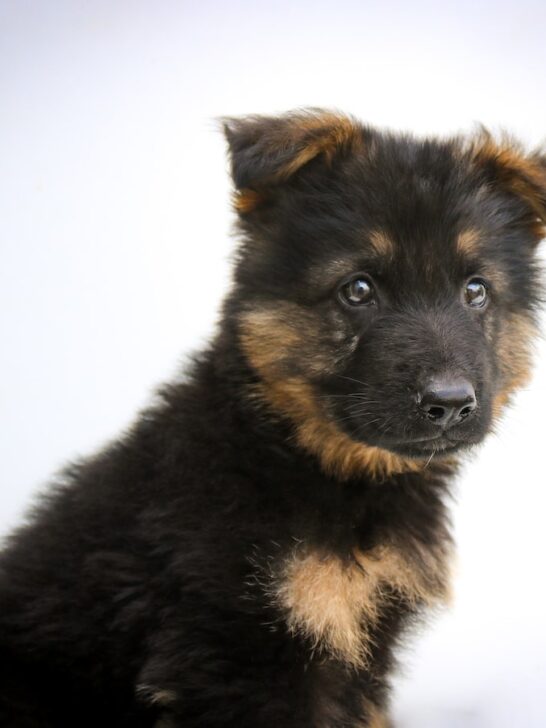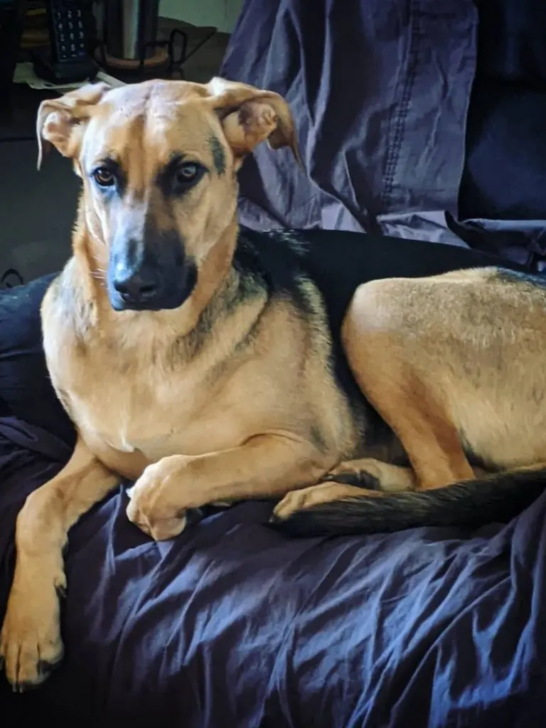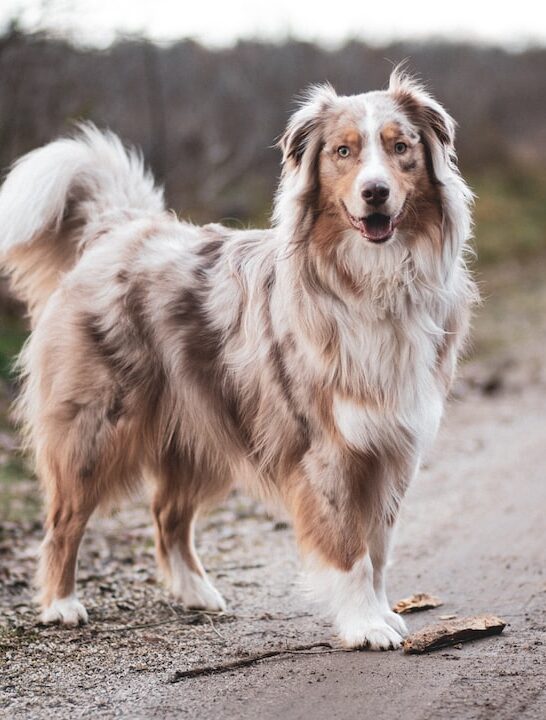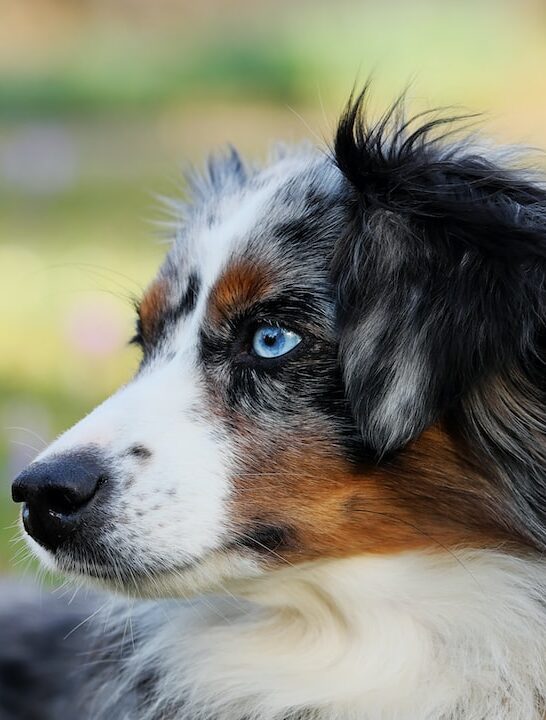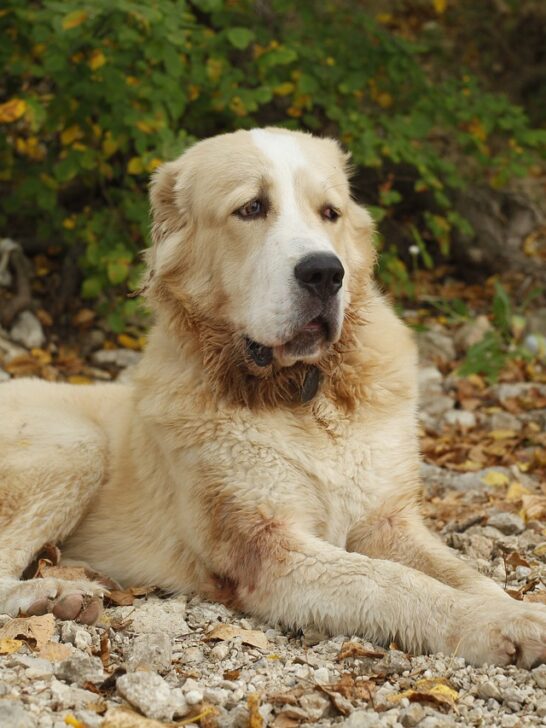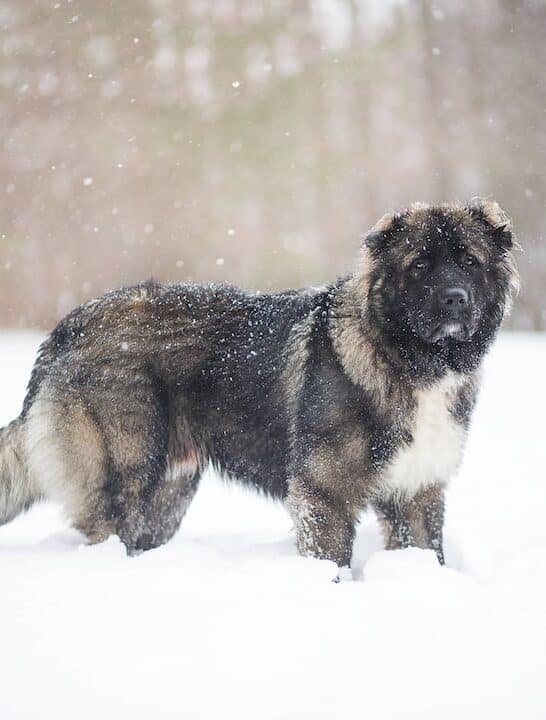Caring for Large Breed Dogs
Labrador Retrievers and Golden Retrievers are among America’s favorite canines. These large breeds are well-regarded for their friendly nature and laid-back demeanor. They typically reach an adult weight of approximately 45 to 90 lbs, making them a sizable addition to any family.
Another popular choice is the German Shepherd Dog. Known for its loyalty and intelligence, this breed can also reach up to 90 lbs when fully grown.
All these large dog breeds require specific care to ensure their health and well-being.
This article is here to help you keep your large dog in the best shape possible. From choosing the right breed to providing proper nutrition and preventing common health issues, here are some crucial factors to consider when caring for your giant four-legged friend.
Key Takeaways
- Caring for large dog breeds requires a comprehensive approach, from a well-balanced diet and regular exercise to proper weight management and early socialization.
- Portion control and regular exercise play key roles in achieving and maintaining an optimal weight.
- Incorporating appropriate activities and vet-approved joint supplements is vital to promote joint health and prevent hip dysplasia.
- Proper socialization and training are important for large dog breeds to become well-mannered and well-adjusted members of society.
How to Choose the Right Large Breed Dog
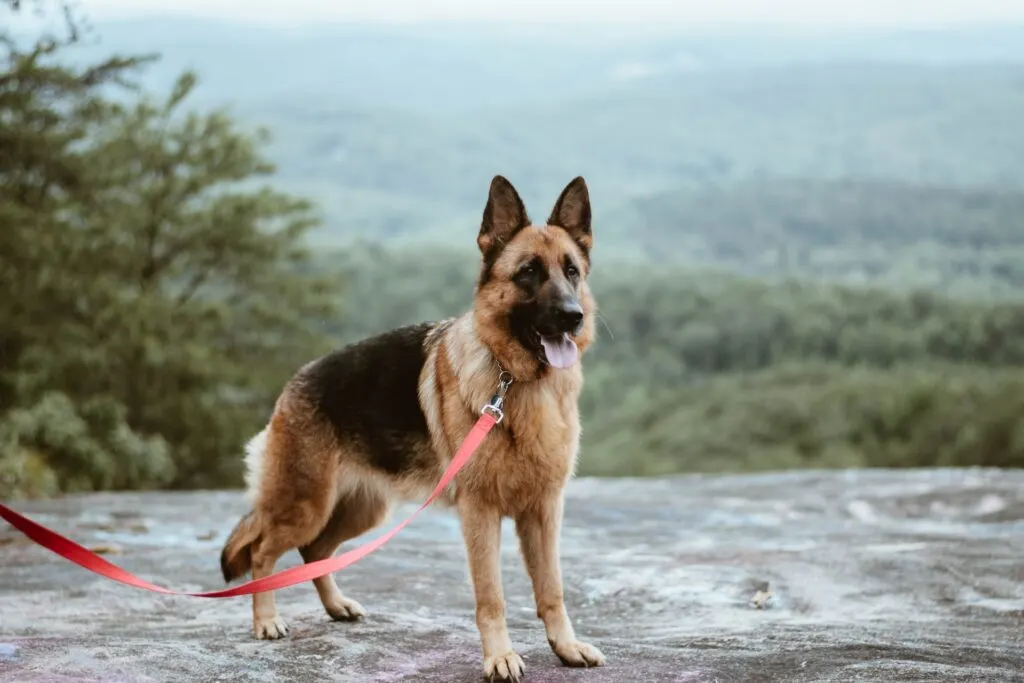
Consider Your Lifestyle and Living Situation
Before getting a large breed dog, consider your lifestyle and living situation. Caring for giant dog breeds usually calls for more space. These breeds may also have specific exercise needs.
- Smaller dogs may be a better fit if you live in an apartment or have a small backyard.
- Conversely, if you have a big yard or live in a rural area, a larger breed might be the perfect companion.
Research Different Breeds
Researching different breeds is crucial in choosing the right large dog breed for you.
Each breed has its own characteristics and needs. Some are more prone to certain health issues, while others may need more exercise or grooming.
Consider factors such as temperament, energy level, and compatibility with other pets or children.
Look for Responsible Breeders
Finding a responsible breeder is crucial if you plan to adopt a large breed dog. These individuals prioritize the health and well-being of their dogs above all else.
From puppyhood, the dogs from such breeders receive proper care and are socialized early. It assures that they grow up to be friendly, well-adjusted canine companions.
Additionally, responsible breeders are familiar with the specific needs of the breed they specialize in. They understand potential health concerns and work proactively to breed healthy dogs.
So, when you choose a responsible breeder, you are certain to bring home a healthy, happy puppy.
Feeding and Nutrition for Large Breed Dogs
Determine the Correct Portion Size
The diet of large dogs, especially during their early years, is of vital importance. The growth pattern of large-breed puppies is different from smaller ones. They grow more quickly and for an extended period.
This quick-and-long growth phase comes with a challenge — large-breed puppies are susceptible to nutrient imbalances and deficiencies.
Feeding the correct portion size is crucial to keep your dog healthy and active. Overfeeding can lead to obesity and other health issues, while underfeeding may result in nutrient deficiencies.
Ask your veterinarian to determine the appropriate amount of food for your dog’s specific needs.
Choose a High-Quality Dog Food
Choosing high-quality dog foods is essential for meeting the nutritional needs of giant breed dogs.
Look for dog food and treats formulated explicitly for large-breed adults or pups. These formulas usually contain the right balance of protein, fat, and essential nutrients for optimal growth and development.
When it comes to feeding a large-breed senior dog, it’s best to give them foods that aren’t difficult to chew and easily digestible.
Monitor Your Dog’s Weight
Ongoing weight monitoring is necessary to ensure your large-breed dog maintains a healthy weight.
Large and giant breed dogs are susceptible to obesity, which can put excess strain on their joints. It can also increase the risk of other health issues like arthritis.
Avoid feeding larger dogs high-calorie and high-fat foods, as it can cause rapid bone growth and lead to hip dysplasia.
Preventing Hip Dysplasia in Large Breed Dogs
Exercise and Weight Management
Dogs’ energy levels can differ significantly. Large dogs often have high energy levels that match their sizable frames.
To keep these dogs healthy, daily exercise is crucial. This regular physical activity helps maintain their physical condition and ensures good mental health.
The amount of exercise that your dog needs can depend on a few factors. These include their age, current health status, and breed or mix of breeds.
Low-impact activities like swimming or controlled walks can help strengthen the muscles around the hips and prevent excessive strain on the joints.
At the same time, avoid high-impact exercises, especially during the puppy stage when their bones are still developing.
Use Joint Supplements
Joint supplements can provide additional support for your large breed dog’s bone and joint health. Glucosamine and chondroitin are commonly recommended to promote joint strength and flexibility.
Consult with your veterinarian to determine the appropriate supplements and dosage for your dog.
Regular Veterinary Check-Ups
Regular veterinary check-ups are essential for monitoring your dog’s overall health, including their hips and joints. Your veterinarian can recommend orthopedic dog beds made for large breeds, perform diagnostic tests, and provide guidance on preventive measures to keep your dog’s hips in good condition.
Maintaining a Healthy Weight for Large Breed Dogs
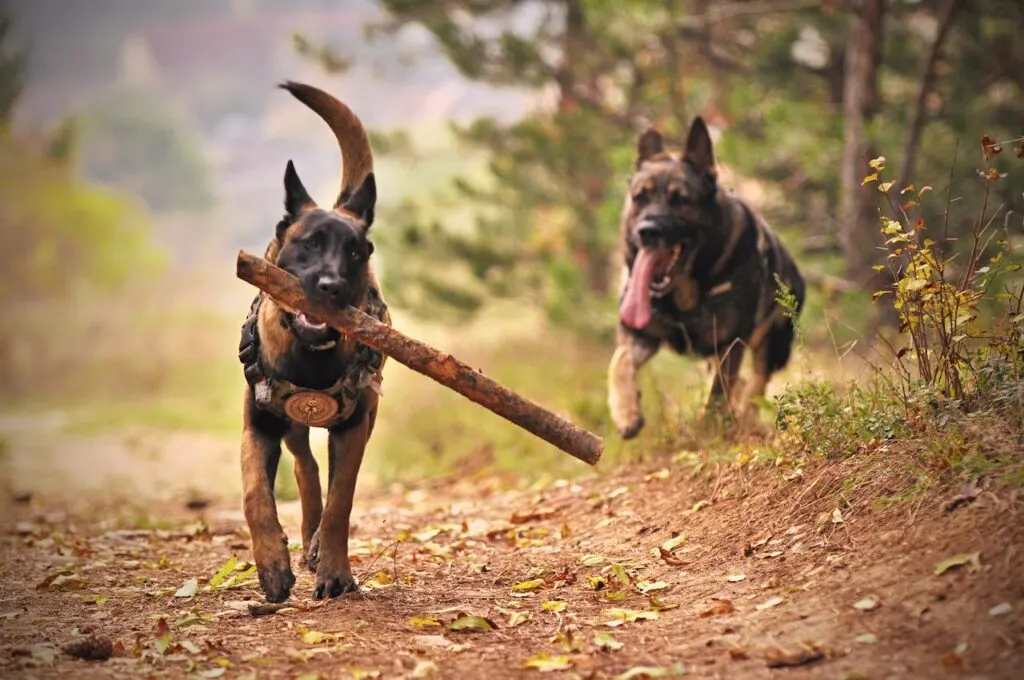
Create a Balanced Exercise Routine
Creating a balanced exercise routine is vital to maintaining a healthy weight for large or giant dogs.
The routine should include daily activities. These activities are best when they stimulate your dog both mentally and physically. Examples of such exercises are interactive play, obedience training, and walking in the park with a leash.
Remember to monitor your dog’s exertion levels during these activities. Too much exercise or exertion can be harmful, particularly when weather conditions are extreme.
Avoid Overfeeding
Be careful not to overfeed your large breed dog since it can cause weight gain and bloating. Feed them only the suggested portion sizes and resist the urge to give them lots of table scraps.
Treats can be another source of extra calories. If you give your dog treats too frequently, they may consume more daily calories than needed. This situation could easily lead to weight issues and health risks for your furry friend.
If you notice your dog putting on weight, take action immediately. Don’t hesitate to talk with your veterinarian. They can help adjust your dog’s diet in a way that suits its health needs best.
Monitor Body Condition Score
Keep a regular check on the body condition score of your large breed dog. This way, you can monitor their weight and evaluate their overall physical appearance.
You can identify a healthy weight for your dog by observing certain signs. These include a visible waistline and ribs that are palpable but not clearly visible.
In case you notice considerable changes in your dog’s weight, don’t ignore it. Events like abrupt weight gain or weight loss call for professional help.
Reach out to your veterinarian immediately. Let them diagnose the underlying issue, if any, and recommend the right way forward.
Proper Socialization and Training for Large Breed Dogs
Early Puppy Socialization
Early socialization is crucial for large dog breeds, such as German Shepherds and Golden Retrievers. It helps them develop appropriate behavior and adapt well to various environments.
Expose your puppy to different people, animals, and situations from a young age to promote positive interactions and reduce the likelihood of fear or aggression issues in the future.
Obedience Training
When it comes to large dogs, training plays a critical role. The main reason is their immense power.
Imagine a situation where your dog jumps up on your elderly neighbor. If it’s a small dog, it might not be viewed as a serious issue. However, the situation changes drastically when your pet is a big dog.
The same action from a grown-up large breed could cause serious trouble. That’s why proper training becomes essential for large dog care.
Start training your dog from an early age using positive reinforcement techniques. Doing so will help establish good behavior patterns and improve your bond with your furry friend.
Consistency and Positive Reinforcement
Consistency and positive reinforcement are critical elements to achieve success while training giant breeds.
The former allows your dog to get accustomed to specific patterns of behavior. By sticking to the same commands, your pet will quickly learn what is required of them.
On the other hand, the latter involves rewarding your pet with treats or praise for performing desired actions.
Avoid training methods based on punishment. Such techniques can frighten your dog or incite aggressive behavior.
Instead, focus on associating good behavior with positive outcomes, such as food rewards or commendations.
Final Thoughts
Caring for your oversized furry friend might demand a bit more attention from you than you initially expected. However, the rewards that come with owning a large dog are plenty.
These dogs have unique, endearing personalities that set them apart. They’re filled with a goofy charm you’ll find irresistible.
Big dogs also have their own captivating antics. The joy they bring to a household is unmatched. They may be sizeable, but so are their hearts and capacities for loyalty and companionship.
Remember, large breed dogs require space, time, and commitment, so make sure you are ready to provide them with the care and attention they need. By giving them everything they require and making well-informed choices, you can keep your big canine companion healthy and happy for years to come.














